Aminopyralid contamination in garden soil
ZachS. z5 Platteville, Colorado
4 years ago
last modified: 4 years ago
Featured Answer
Sort by:Oldest
Comments (8)
mmmm12COzone5
4 years agoSkybird - z5, Denver, Colorado
4 years agoRelated Discussions
Contaminated soil
Comments (14)I can probably find out some laboratories for you if you actually want to run tests (if you let me know where you are located). My email is in my page. Also, i would suggest you do the test at 3 depths to pin down where the contamination may reside, maybe 1 ft down, 2.5 ft down, and 5 ft down. VOC samples can cost around $80 bucks a piece. There may be some more inexpensive test kits that can provide an indication of contamination without specific results of the individual compounds. You can call pine environmental, who is an equipment supplier to the environmental remediation industry and pick their brains. They also have field screening equipment available for rent (and they ship)....See MorePossibly Contaminated Soil- Advice needed!
Comments (9)My first reaction is, Wow! The situation you described reminds me of Woburn, MA. My next reaction is to tell you relax, and focus on getting quality answers from reliable sources. There are too many variables for anyone without specific knowledge of your situation to suggest what you should do. Questions like when did it happen, what was(were) the primary contaminant(s), where did it occur, what testing was done then and what were the results, what corrective action and remediation followed, has there been any monitoring since, etc., all come to immediate mind. Other questions will follow. Also, how did you learn about the history - was it disclosed in real estate transaction, or did you learn of it from others afterwards? As far as getting answers, I would start with your state's department of environmental quality or natural resources or whatever it's called to get answers to the historical questions. If there was a Superfund site involved then there should be EPA records. You may be able to access some of that with good searching of their sites (which are typically convoluted). Was there a lawsuit ? If so that may be another source of info. Your goal is to get an accurate picture of what happened, and what specific contaminants were involved. As far as testing, yes there are many labs that will do the kinds of tests that would be appropriate. Find them by looking/searching for "environmental testing laboratories", Here is one example located in the NE. But a warning - those kinds of tests are typically quite expensive -- hundreds to thousands per test - and you need to know exactly what you are looking/testing for. First, seek accurate information, unembellished by emotion or agenda. Once you have the answers you can add your own emotion afterwards. As far as gardening, do you have a local county ag extension office? How about a Master Gardeners group? Any gardening clubs? If so, they may be able to guide you on the risks and what is known as far as the pertinent concerns. If you are at all concerned, then until you have some answers go with raised beds with "imported soil" and containers. Enjoy the gardening while you look for answers. This post was edited by TXEB on Sun, Apr 28, 13 at 10:29...See MoreContaminated soil...any thoughts?
Comments (18)I thought that I would update this post for any who come across it in searches. The herbicide is still active in the soil. When there is a volunteer tomato plant growing, I have allowed it to grow as a test and it is still showing deformity, but it is taking longer before it shows the deformity so I think the contaminant is being pushed further down. I believe a huge factor in this has been the our drought. The snow we have gotten in the winter has had very little moisture in it and the summers have been quite dry. Hopefully we get a wet winter and a good monsoon season next year. Another observation is that those families that are not bothered by the herbicide have done exceedingly well. Squash, kale, broccoli, onions, cauliflower, chard, melons, cukes, etc. have done better in these beds than anywhere else in the garden which is more than likely due to the large amount of manure we placed in them. The plan for now is to continue growing what will grow, adding more compost and growing cover crops and hopefully within another 2 years they will be available for tomatoes....See MoreHerbicide Contamination In Manure and Compost
Comments (15)Thanks for the info y'all. I have used staw bales before that I left out to get rained on to sprout all the seeds in them, so they wouldn't sprout in my garden. Mulching potatos this way produced some of the best potatos I've ever eaten, and what fun it was to run out before dinner and dig up a few crispy fresh Yukon Gold's right out of my own garden! Right now, since I am a single lady, my problem is getting the spoiled hay or straw from point A...the farmer or rancher's barn or whatever...to point B...my garden :( But, I'll look around as per some of your great suggestions and see what I can come up with :) However, right now I am preservering and on top of the mushroom compost and peat moss, I'm using a bunch of last year's dead grass clippings that I'd piled up, some of which were partially composting, and I am breathing prayers that there is no fungus in this material to affect my potato plants which are growing like crazy. Afterwards, I lightly dusted with Bonide Copper Fungicide, which I hope will control any potential fungus, and that it won't do more harm than good. Also, even though the plants look healthy with no sign of potato bugs, "something" seems to be nibbling the edges of some of my plants. If it gets worse, I'm going to have to fight back rather than have all my hard work destroyed by some trespassor! Another question I have is, when do I stop adding more compost, hay, straw or other mulching material on top of these fast growing potato plants? None of them have started blooming yet....See Moregjcore
4 years agoLaura (Z5a Fort Collins, Colorado)
4 years agoZachS. z5 Platteville, Colorado
4 years agolast modified: 4 years agomathewgg
4 years agolgtung
2 years ago
Related Stories

GARDENING GUIDESGet the Dirt on Your Garden’s Soil
Understand how your soil supports your plants so you can ensure your garden’s success
Full Story
FARM YOUR YARDHow to Get Good Soil for Your Edible Garden
The nutrients in your soil feed the plants that feed you. Here are tips on getting it right — just in time for planting season
Full Story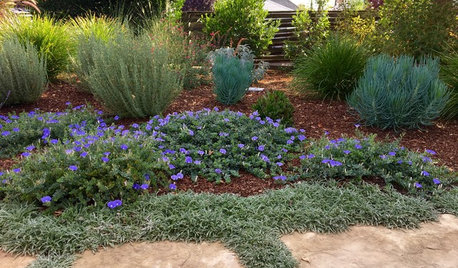
GARDENING GUIDESWhat to Do This Fall to Build Healthy Garden Soil
Take advantage of the cool season to improve soil texture and replenish nutrients
Full Story
EDIBLE GARDENSNatural Ways to Get Rid of Weeds in Your Garden
Use these techniques to help prevent the spread of weeds and to learn about your soil
Full Story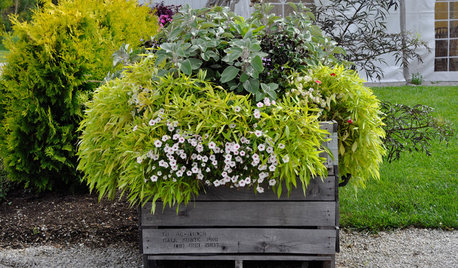
GARDENING 101This Pro Tip Will Save You Money on Your Container Garden
For large planters, use empty milk cartons or plastic bottles to fill extra space before putting in potting soil
Full Story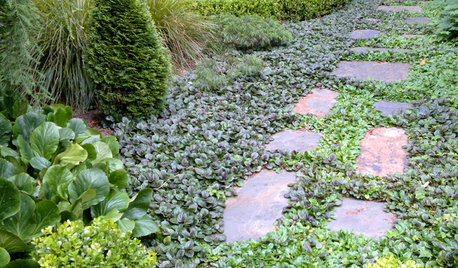
GROUND COVERSGround Force: 10 Top Ground Covers for Your Garden
Protect your soil from weeds and drought this summer with a living mulch of ground covers
Full Story
FALL GARDENING5 Ways to Put Fall Leaves to Work in Your Garden
Improve your soil and yard the organic way with a valuable garden booster that grows on trees
Full Story
GARDENING GUIDESThe Poop Scoop: Enrich Your Soil With Good Old Manure
Get over the ick factor already — this natural super-ingredient for soil has so many benefits, you'll wonder why you ever went chemical
Full Story
GARDENING GUIDES10 Ways to Make Your Garden More Productive
Maximize your garden’s growth and output by building healthy soil, expanding growing space and collecting rainwater
Full Story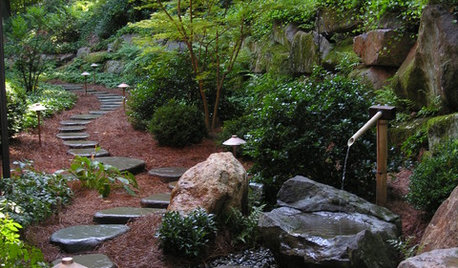
GARDENING GUIDESLowly Mulch Makes Magic in the Garden
Find out why you should be mulching your garden beds and what material is right for your site
Full Story


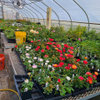
Laura (Z5a Fort Collins, Colorado)